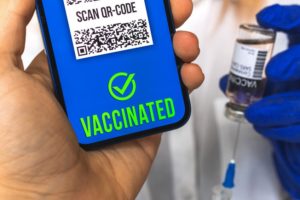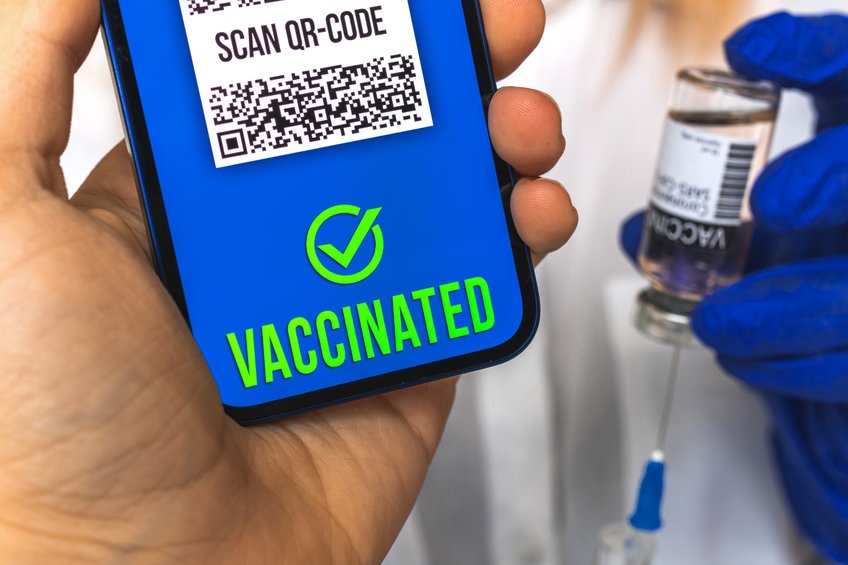OSHA Vaccine Mandate Developments
December 20, 2021
On Friday, December 17, 2021, the federal appeals court tasked to decide whether OSHA’s emergency temporary rule mandating vaccines for private employers with 100 or more employees finds that the OSHA rule can stand. Thus, private sector employers must require vaccination per the OSHA ETS by January 4, 2022. A question still remains whether OSHA’s ETS standard will trump Florida’s Vaccine Mandate Program allowing for additional exemptions from such mandates.
Previously, the Fifth Circuit Court of Appeals issued an injunction halting OSHA’s ETS after many states challenged OSHA’s authority to implement this rule. As a result, OSHA agreed to hold off implementation pending court developments.
_______________________________
Mandate Paused!
November 17, 2021
Enforcement of OSHA’s vaccine or test mandate for employers with 100 or more employees is suspended awaiting developments from the courts.
_______________________________
On November 4, 2021, we originally posted about the new OSHA vaccine or test mandate. Check it out below.
As a follow up to our blog COVID-19 Vaccine Mandate Update: President Biden’s Executive Order for Employers With Over 100 Employees, the wait for interpretation of President’ Biden’s mandatory vaccines for workers of private employers is over.
 On November 3, 2021, the Occupational Health and Safety Administration (OSHA) released the new “Emergency Temporary Standard” (ETS) regulations on vaccine requirements for private employers who employ 100 or more employees—with a few exceptions. If you work remotely or from home, work exclusively outdoors or in a workplace without others present, you are exempt from the ETS. The main takeaways from these rules are summarized below:
On November 3, 2021, the Occupational Health and Safety Administration (OSHA) released the new “Emergency Temporary Standard” (ETS) regulations on vaccine requirements for private employers who employ 100 or more employees—with a few exceptions. If you work remotely or from home, work exclusively outdoors or in a workplace without others present, you are exempt from the ETS. The main takeaways from these rules are summarized below:
When does it go into effect and for how long?
It takes immediate effect and employers must comply with these regulations within 30 days from November 3, 2021 with one exception. This exception allows covered employers to comply with the testing requirements of unvaccinated workers every seven days within 60 days of the ETS’s publishing date. OSHA estimates that the ETS regulations will be in effect for at least six months after publication in the federal register.
The ETS requires the following:
- Paid leave of up to four hours at an employee’s regular rate of pay to get vaccinated and a reasonable amount of paid leave to allow for recovery from any side effects from the vaccine, even if the employees do not have certain sick leave or other paid leave benefits available.
- Determination of each employees’ vaccination status, including whether they are fully or partially vaccinated. This will include requesting documentation of proof of vaccination, such as vaccine cards or medical records demonstrating vaccination status.
- Record keeping of each employee’s vaccination status, the documented proof of vaccination and maintenance of these records as long as the ETS rules remain in effect. Because these are considered medical records, employer will be required to keep them confidential in accordance with federal and/or state law, unless otherwise authorized by the ETS or other law.
- Record keeping for COVID-19 test results for all employees who decline vaccination and maintain them for as long as the ETS remains in effect. Similarly, these are considered confidential medical records and should be treated as such.
- Implementation of a written policy that complies with the ETS requiring mandatory vaccination and/or a written policy that allows employees to choose vaccination or weekly testing and wearing of a face covering.
- A “mandatory vaccination policy” requires each employee to be fully vaccinated (typically defined as two weeks after receiving second dose of the COVID-19 vaccine), unless they have a medical or religious accommodation. The policy must require vaccination of all employees, including all new employees as soon as practicable.
- Providing employees access to vaccination information upon written request—specifically an employee is entitled to access to their own vaccination/testing records as well as to disclosure of the number of vaccinated workers (without giving identifying information) and the total number of employees at the workplace within one business day of the request.
- Informing employees of the following information:
- The requirements of the ETS regulations.
- Providing employees with CDC documentation outlining information on COVID-19 vaccines and the benefits of being vaccinated available here.
- The OSHA requirements which prevent employers from retaliating or discriminating against employees who report employers for OSHA violations, or report that they have a work-related injury or illness, such as COVID-19.
- The criminal penalties that are available to any person who knowingly give false statements or documentation to fulfill the vaccination requirements of the ETS regulations.
- Employers must also report each work-related COVID-19 death or hospitalization to OSHA within eight and 24 hours of the employer learning of them, respectively.
Employees are required to promptly report a positive COVID-19 test result.
Is the employer required to pay for COVID-19 testing if an employee chooses this option?
No, employers are NOT required to pay for any of the costs of weekly testing, unless otherwise required by other laws, regulations, or collective bargaining agreements.
What if an employee refuses to get testing or vaccination?
Per the OSHA ETS, unvaccinated workers who refuse or fail to provide COVID-19 test results weekly shall be removed from the workplace until they provide the required test results.
Employee Protections
Federal and Florida law protects workers from retaliation if an employee:
- Files a complaint with OSHA against the employer; or
- Makes an internal complaint about an employer’s failure to comply with the ETS; or
- Reports workplace illnesses, including COVID-19.
Navigating OSHA’s mandatory vaccine requirements can be difficult. Have questions, consult with experienced employment attorne

